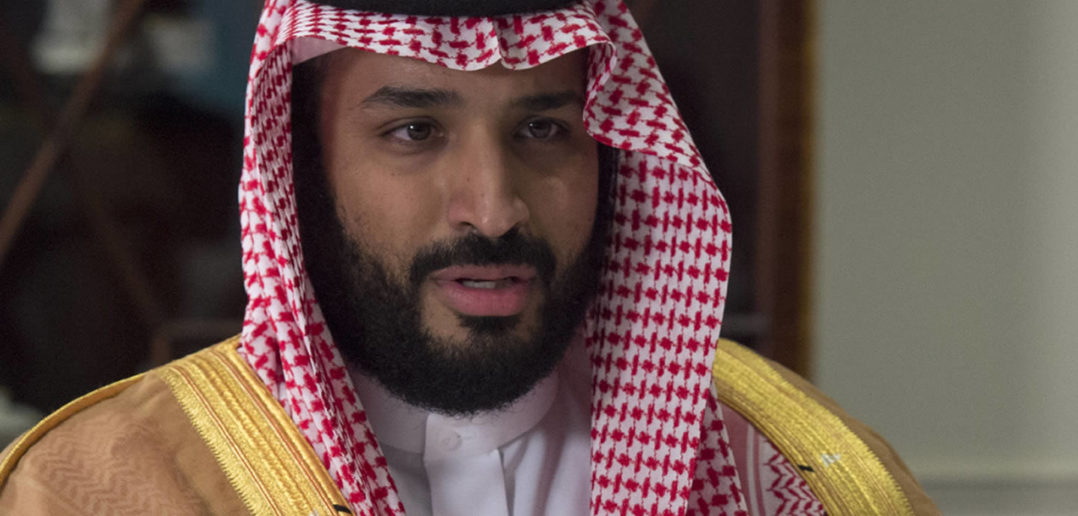Saudi Arabia has long been an elephant in the room in discussions of ethics in British foreign policy and concern for human rights abuses abroad. While proponents of Britain’s role on the international stage argue we are a force for good, promoting liberal democracy and taking action against abusive states, our cosy relationship with the House of Saud – an absolute monarchy that ranks among the world’s most egregious abusers in terms of human rights, women’s rights, freedom of speech, and capital punishment – has fed accusations that our government’s stance on the global scene might be a tad hypocritical.
Organisations such as Amnesty International and Human Rights Watch have long highlighted the executions of Saudi dissidents and the continuing UK arms sales to Saudi forces that have been implicated in war crimes in Yemen over the past three years. For over a year now, Saudi Arabia and its mercurial crown prince Mohammed bin Salman have also engineered a blockade of Qatar – another British ally – that has undermined British diplomacy in the Middle East along with violating international law.
And yet, as the New York Times’ Max Fisher noted in relation to a parallel shift happening in the United States, the killing of dissident Saudi journalist Jamal Khashoggi has unleashed a backlash against Saudi Arabia in general – and bin Salman in particular – that neither the regime’s heavy-handed domestic repression nor its acts of aggression against neighbouring Yemen and Qatar had managed to ignite.
The Government now finds itself in a precarious position. Downing Street and Parliament have no choice but to take a critical stance against a regime that they have historically been closely tied to, but Saudi Arabia is still seen by Westminster as a key post-Brexit trade partner and an important ally on matters of regional security. Of course, reinforcing those perceptions has been a key aim of Saudi public relations efforts in the UK.
The Conservatives have generally been highly reticent to express criticism towards the Saudi government or its crown prince. Theresa May has repeatedly travelled to Saudi Arabia, as well as hosting bin Salman at Downing Street earlier this year to try and cement post-Brexit trade deals. Following the meeting at Downing Street in March, the government announced a mutual agreement worth £65 billion that would be a “significant boost for UK prosperity”.
Earlier this month, the Natural History Museum hosted an event for the Saudi embassy attended by a number of British politicians and journalists – including Minister of State Rory Stewart and Con Coughlin, defence editor of the Conservative-supporting Daily Telegraph. Coughlin subsequently wrote an article urging restraint in the UK government’s response to the Saudis following the Khashoggi affair.
For the Labour Party and other critics of Britain’s problematic Saudi partnership, the response has been nowhere near strong enough. Several senior Labour MPs, including the shadow foreign secretary Emily Thornberry, have called on Theresa May to take action. She and others have pointed out how Westminster has been slow to react in this case, with foreign secretary Jeremy Hunt taking a week to issue a statement, compared to Boris Johnson’s almost immediate response to the (ultimately staged) assassination of Russian journalist Arkady Babchenko in Kiev in May.
Could the current international backlash to Saudi Arabia prove to be the tipping point on one of Britain’s most controversial and divisive relationships? A couple of factors suggest it might be. The first is the magnitude of this incident. Although the Saudi government has been long and widely criticised for its suppression of internal dissent, this may be the first time its behaviour has blown through the country’s network of allies in Western capitals to come so directly under the global spotlight. Even the Trump administration, which indulges in an even cosier relationship with Saudi Arabia, has announced US Treasury Secretary Steven Mnuchin would pull out of a high-profile investment conference in Riyadh later this month.
Whereas Mohammed bin Salman was pitching his kingdom as a key business partner for Britain a few months ago, both he and his regime have become toxic in the eyes of the global markets. Even if the prince’s hold on power survives this round of international condemnation, his efforts to transform his country’s economy with the help of foreign investors are almost certainly finished.
The second reason is the clear parallel between this current crisis and the Russian government’s attempt to assassinate Sergei Skripal in Salisbury earlier this year. The Saudis have been accused of “taking a page out of Putin’s playbook” after claiming that the 15 suspects in the journalist’s disappearance, many of whom have been linked to Saudi authorities, were in Istanbul as tourists. If any country should empathise with the flagrant violation of international law this type of action represents, it should be the UK.
If Theresa May does decide to change her approach towards dealing with Riyadh, it would mark an important and welcome shift after years of attempts by campaigners to force the British government to take Saudi abuses both at home and abroad seriously. The Conservatives are by no means the only party to blame – Tony Blair’s Labour government was also guilty of indulging the Saudi regime to the benefit of the arms industry – but they are the ones now defending what has become an indefensible status quo.




